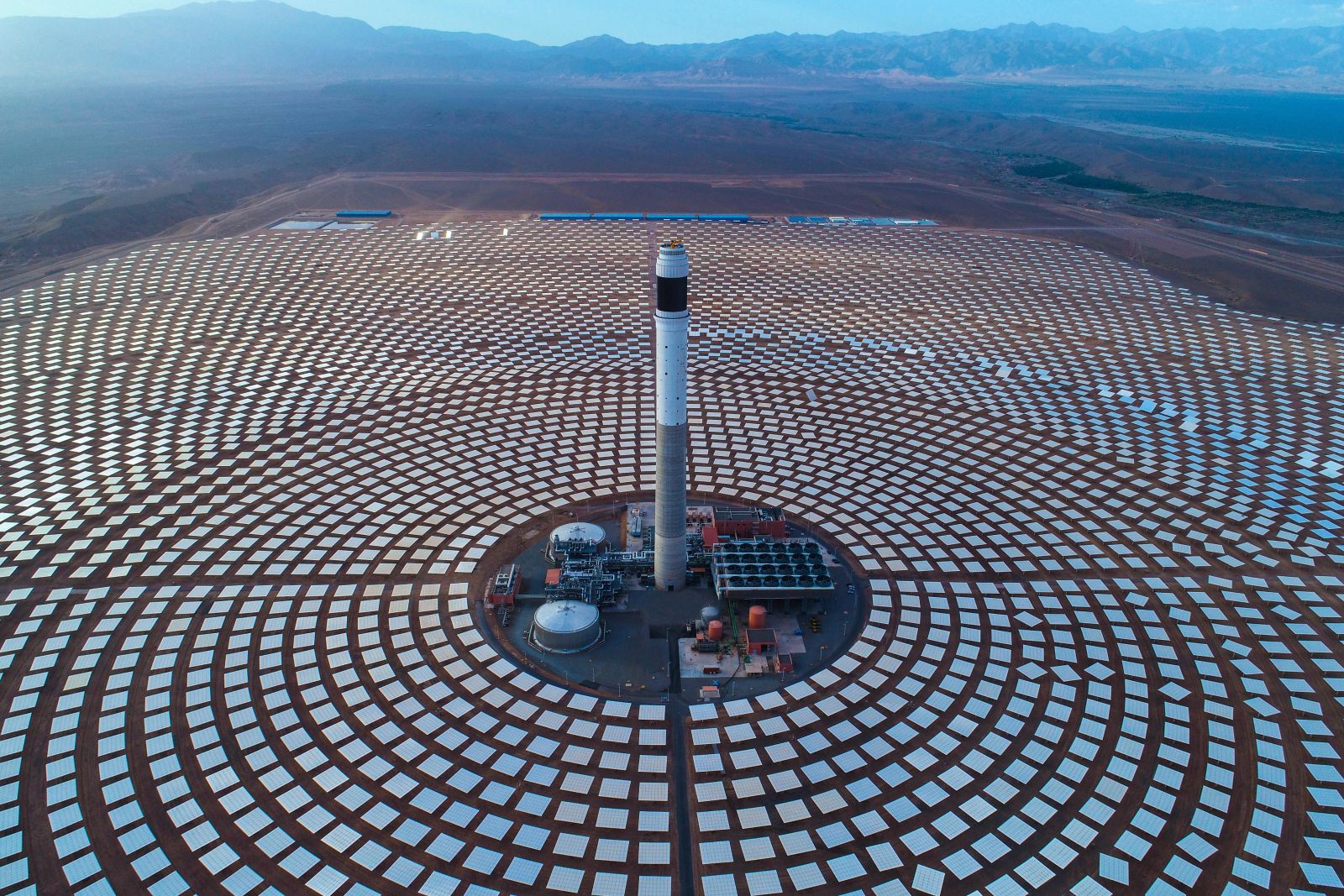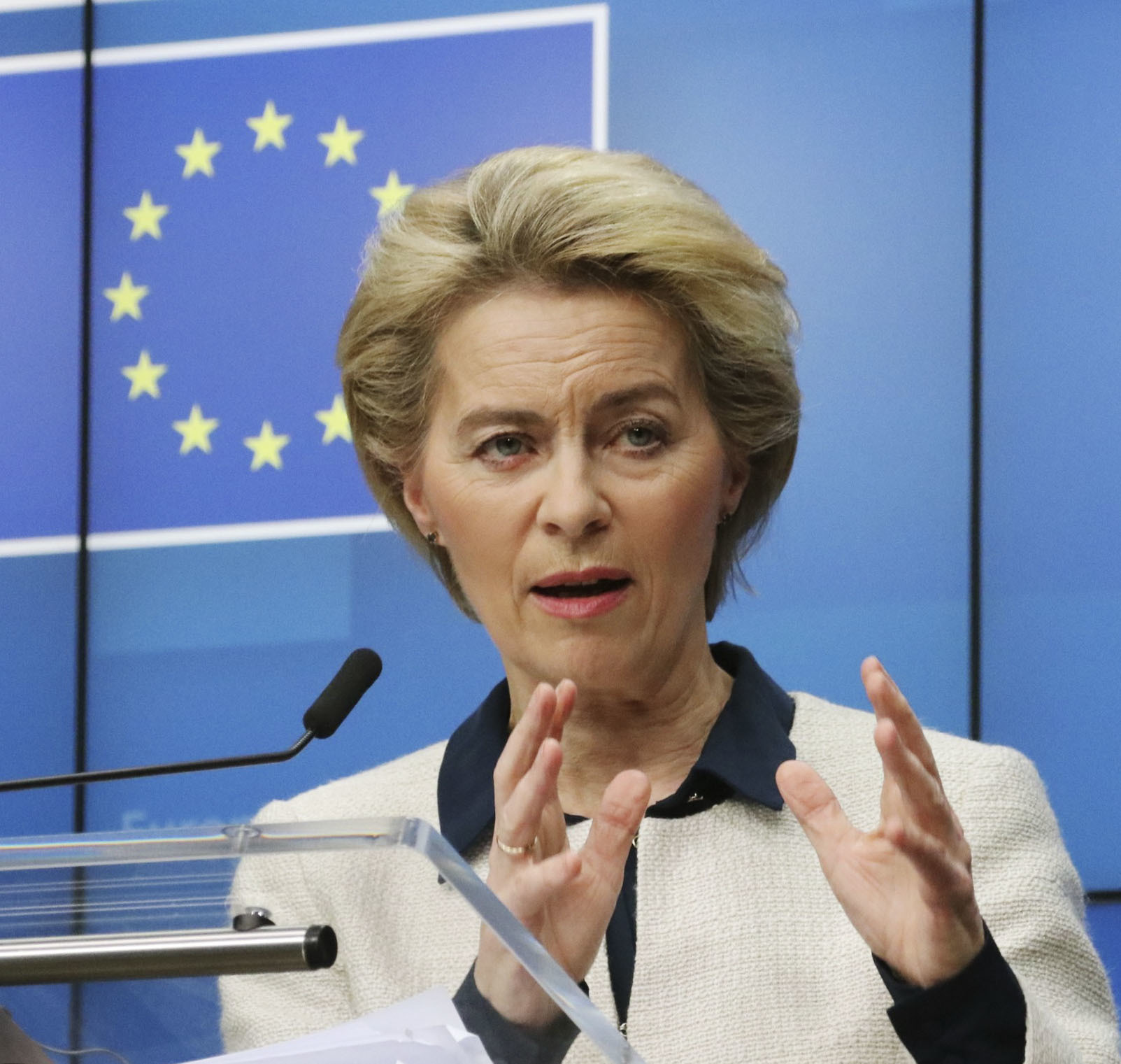Sustainability
A European brand

The notion of sustainability started in German forest management in the early 18th century. It means: don’t cut more wood in a given time span than will grow in that time span, unless you want to ruin yourself.
Today, the term is used in a wider sense. It is about future generations enjoying at least the same opportunities as the people who currently inhabit earth, and sharing opportunities fairly. Relevant aspects thus include the fight against poverty and hunger, decent work for all, good health care, quality education and gender equality. Obviously, the natural environment and the climate must be protected at the same time. Moreover, strong institutions must safeguard global peace and justice.
From the outset, the EU was based on peace and rule of law, supported by strong institutions. The common economic governance was based on the idea of a market economy with an emphasis on social protection and inclusive growth (“social market economy”). The concept was successful. Less advanced countries that joined the Union tended to prosper as a result. Unfortunately, a sense of competitiveness has replaced the spirit of solidarity, so 120 million Europeans are at risk of slipping into poverty, and many question the EU itself.
A longer standing problem is that economic success often came at the expense of nature in Europe. The continent is densely populated and has few natural resources. It has used more than its fair share of the planet’s resources, and people are only beginning to understand that they cannot continue this way in light of the fast growing world population.
Therefore, the EU must rediscover “social market economy” principles. They include ownership (in the sense of assuming responsibility for the external effects of one’s economic activity) and solidarity. The EU must accept the SDGs as the overriding common policy objectives.
All policy proposals should be tested against the three aspects of sustainability: economic, social and environmental – with equal weight. A more transparent, participatory form of governance is needed. Policy outcomes must be monitored better and communicated to the public, so the regulatory frameworks can be improved accordingly. It is necessary to comprehensively analyse present policies in regard to their sustainability.
Trends must change
The picture is grim. If, in 2050, 10 billion people lived according to the EU’s current consumption and production patterns, humanity would need 2.5 times more resources than are available on earth. It is a good thing the EU has started to move towards a circular economy. We must collect and recycle waste. We must extend the life cycle of products through repair, reuse and remanufacturing. We must use less resources in the production of goods and services. We must rely more on renewable sources of energy.
Europe is beginning to become a more service-based economy, with expensive goods being leased instead of bought. This trend is healthy, as it reduces the number of goods whilst generating millions of new jobs. Some EU member states are leading the trend.
We know that reusing scrap metal is many times more efficient than mining. We have developed technologies to recycle high-quality secondary raw materials. What cannot be recycled, however, should at least serve power generation in incinerators. Such facilities can be linked to distant heating systems and thus contribute to satisfying energy demand and improving the air quality. The transformation to sustainability requires regulatory frameworks that support change and provide predictability for investors.
Lack of concerted policy
The EU is the only sizeable partner that has effectively fulfilled its pledges concerning the greenhouse-gas reductions that were agreed in the Kyoto Protocol. Nonetheless, it is still emitting more than its fair share. Less than seven percent of the world population live in the EU, but its share of carbon emissions is ten percent.
The EU was at the forefront of developing renewable-energy technology, but it has now been overtaken by China – both in terms of installed capacity and patent registration. Due to lack of concerted policy, the EU has lost its first-mover advantage. It’s recent proposal for an Energy Union correctly makes energy savings the highest priority. Making energy-efficient products in an energy-efficient manner can become a new competitive advantage for the EU. It will create many new jobs, but requires innovation.
The global financial markets are not on a sustainable path either. In the 1980s, global financial assets and GDP were still roughly in balance. Since then, financial assets have outpaced real assets by a factor of four, due to soaring public debt and speculation in futures. World Bank economists reckon that financial engineering reduces global economic growth by about two percentage points annually.
In the world economy, crises tend to affect all players. To become more resilient to external shocks, the EU will have to complete its Banking Union. Prudential supervision is becoming ever more important, in particular in the light of a probable US u-turn in financial regulation, which would ignore the lessons learned from the last crisis and make a new crisis more likely. Making the finance sector sustainable means to eliminate the most speculative forms of trading.
Some kind of financial transaction tax, moreover, is needed to slow down short-term speculative transfers of funds around the world. At the same time, such a tax would contribute to balancing national budgets. It is absurd that our tax system still puts the heaviest burden on labour.
Loopholes in corporate tax systems are another problem. The European Parliament estimates them to cost the EU between € 50 billion and € 70 billion annually. That money is bitterly needed for infrastructure, health-care systems, education and social protection.
European societies are currently generating individual wealth, increasing inequality and weakening public budgets in an unsustainable way. Reliance on ever more philanthropy is not an appropriate response. It causes concern that wealthy individuals like Bill Gates can spend more money on issues of public interest than elected governments.
Problematic food industry
Food production is another area of concern. Farmers are under constant pressure to produce more and cheaper commodities. The growing – and expensive – use of pesticides, fertilisers and ever more sophisticated technology has squeezed their incomes to a point where many give up. The farms that survive tend to specialise in large monoculture production, which negatively affects landscapes, biodiversity, rivers, soils and air.
Consumers suffer too. Food is contaminated by residual pesticides or antibiotics. Obesity, cardio-vascular diseases and diabetes are becoming more common, partly due to what we eat. We subsidise farmers’ incomes with public money, favouring huge industrial-scale farms at the expense of the environment and rural employment.
The good news is that alternative approaches are gaining ground. Less pesticides do not necessarily mean less yield, nor does less fertiliser use. Nature, if kept in good shape, will produce fertile soils and clean water and help pollinate. Farmers who have escaped the vicious circle of trying to beat falling prices with ever more expensive inputs have seen their revenues increase. Consumers too are changing their habits, turning to organic products and including less meat and less sugar in their diets.
The list of unsustainable European policies is much longer. Air pollution in cities is a huge challenge, and so are emissions caused by commuters. Oceans and seas are overexploited and polluted. The EU should do more to improve matters.
Yet there is hope. Ever more Europeans are paying attention to these issues. Though European policies may not be appropriate yet, they tend to be better than those adopted in most other parts of the world. Many countries copy EU sustainability solutions, whether in renewable energy, circular economy, safety assessment of chemical substances, nature protection, water legislation et cetera.
Europeans want better governance and more social justice. The fact that 120 million Europeans are at risk of poverty is an alarming sign that our economic model is failing. The EU needs policies that provide security, decent work and good affordable standards of life within the ecological boundaries of planet earth. On this densely populated continent, sustainability in this sense will only be achieved in the spirit of solidarity that marked the treaty of Rome, which was the start of the EU. Sustainability can become a rallying vision for all Europeans. It can become the brand that unites the continent.
Karl Falkenberg is Senior Adviser in the European Political Strategy Centre (EPSC), the European Commission’s in-house think tank.
karl.falkenberg@ec.europa.eu












